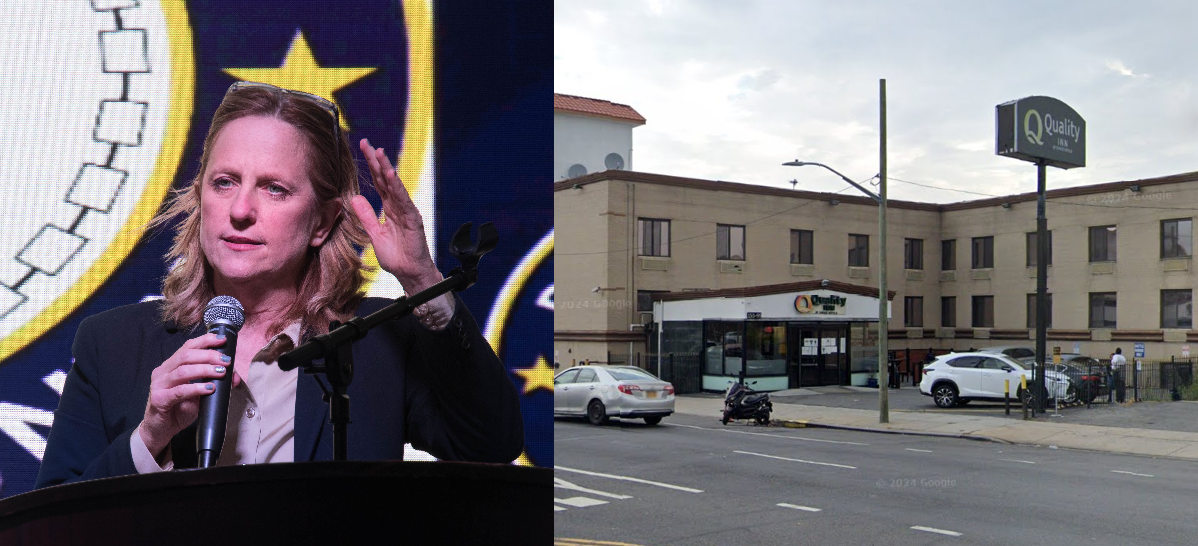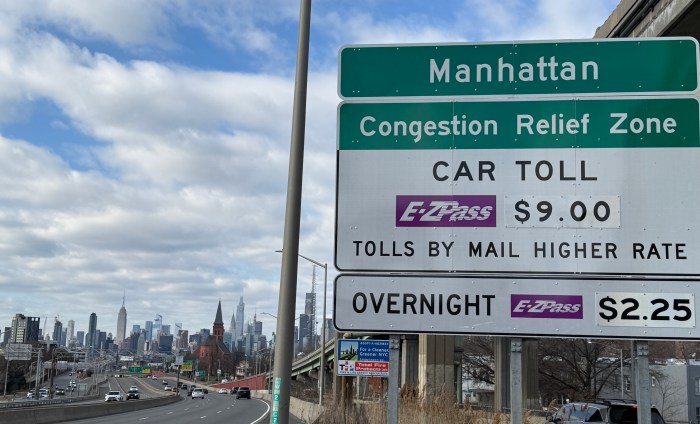Silvia Pillajo, a 38-year widowed mother from Quito, Ecuador, arrived in New York City with her 13-year-old son Diego in August. Like so many migrants before her, Pillajo traveled across the Darien Gap, imagining a new life of opportunity and financial relief in America.
“The situation in Ecuador is bad…there are many bad people, a lot of crime,” Pillajo said. “There is no support for the people…instead of progressing, it’s going backward. That’s why people like me have emigrated to the land of wonders.”
Pillajo is one out of over 100,000 migrants that have arrived in New York City since last spring. After arriving she was placed in a shelter on East 96th Street in Manhattan with her 13-year-old son. To make a living, Pillajo borrowed money from a friend to buy a cart and started selling mangoes in crowded subway stations in and around downtown New York.
“I arrived and was in a shelter, desperate because I haven’t been able to find a good job,” Pillajo said. “I saw many people selling, and I started selling.”
After a long day of selling mangoes in September, Pillajo was approached by officers with the New York Police Department. The officers issued Pillajo an initial ticket for selling without a license and when they asked for her identification, she hesitated. She says she panicked at the sight of law enforcement because she feared it would impact her deportation status. Pillajo’s reluctance to comply caused the police to issue her an additional $1,000 fine. For the last several months, she has been trying to figure out how to pay this debt, given the fact that she has no money and no authorization to work in the United States legally.
Since the start of 2022, the NYPD has issued 3,392 tickets to illegal vendors, marking a 53% increase from pre-pandemic levels. Popular food markets like Corona Plaza in Queens, largely operated by migrants, was shut down in July because many of the vendors didn’t have licenses. Additionally, migrants like Pillajo who sell fruit, churros or candy bars have also been targeted by law enforcement.
According to state Sen. Jessica Ramos, who serves the Queens neighborhoods of Corona, Elmhurst, East Elmhurst, and Jackson Heights, the obstacles to getting a vending permit have discouraged migrants from doing so. Now, the city has an underground vending market that includes about 20,000 people without actual permits.
“Often, immigrants don’t understand what their rights are,” Ramos said. “As we continue our advocacy to change those laws and put an actual system in place, we need immigrants to understand what the regulations are and hopefully be as best actors as they can be.”
According to Ramos if Pillajo had understood her rights, she would have been able to dispute this ticket, which arguably should not have been issued in the first place. Since Pillajo had a covered cart and wasn’t selling at the time that she was stopped, the police didn’t have a right to give her a ticket for vending.
For the last few months, Pillajo has climbed through bureaucratic obstacles in an effort to deal with her tickets. She visited the City of Administrative Courts and Hearings three times, just to understand what her next steps are. More than once, there have been no Spanish-speaking translators to explain the situation to her.
“I arrived and just stood there, waiting only to be told that a judge would call me,” Pillajo said.
“On the phone, the judge told me that he was imposing a fine of $1,000, which I think is unfair. It shouldn’t be for working that I get fined. I don’t think it’s right.”
Pillajo could appeal the case – a lengthy and complex process for someone who doesn’t speak English. Now, she is trying to figure out how to come up with $1,000 to pay the fine.
Pillajo briefly began working with an agency that helps migrants find work for a placement fee. The agency found Pillajo a family in Brooklyn to clean for, but when she couldn’t afford to pay the fee, she lost the job. Since then, she’s been spending her days walking through the city trying to find a job without success.
“Now, I can’t defend myself, I don’t have a means to support my children,” Pillajo said. “I don’t deny the laws, but they are very harsh, very harsh and unfair, because one wants to work, and I would like these cases to be taken into account. I don’t know where to send it, to the president, to the mayor. I am Ecuadorian. We also want an opportunity, like everyone else.”


































